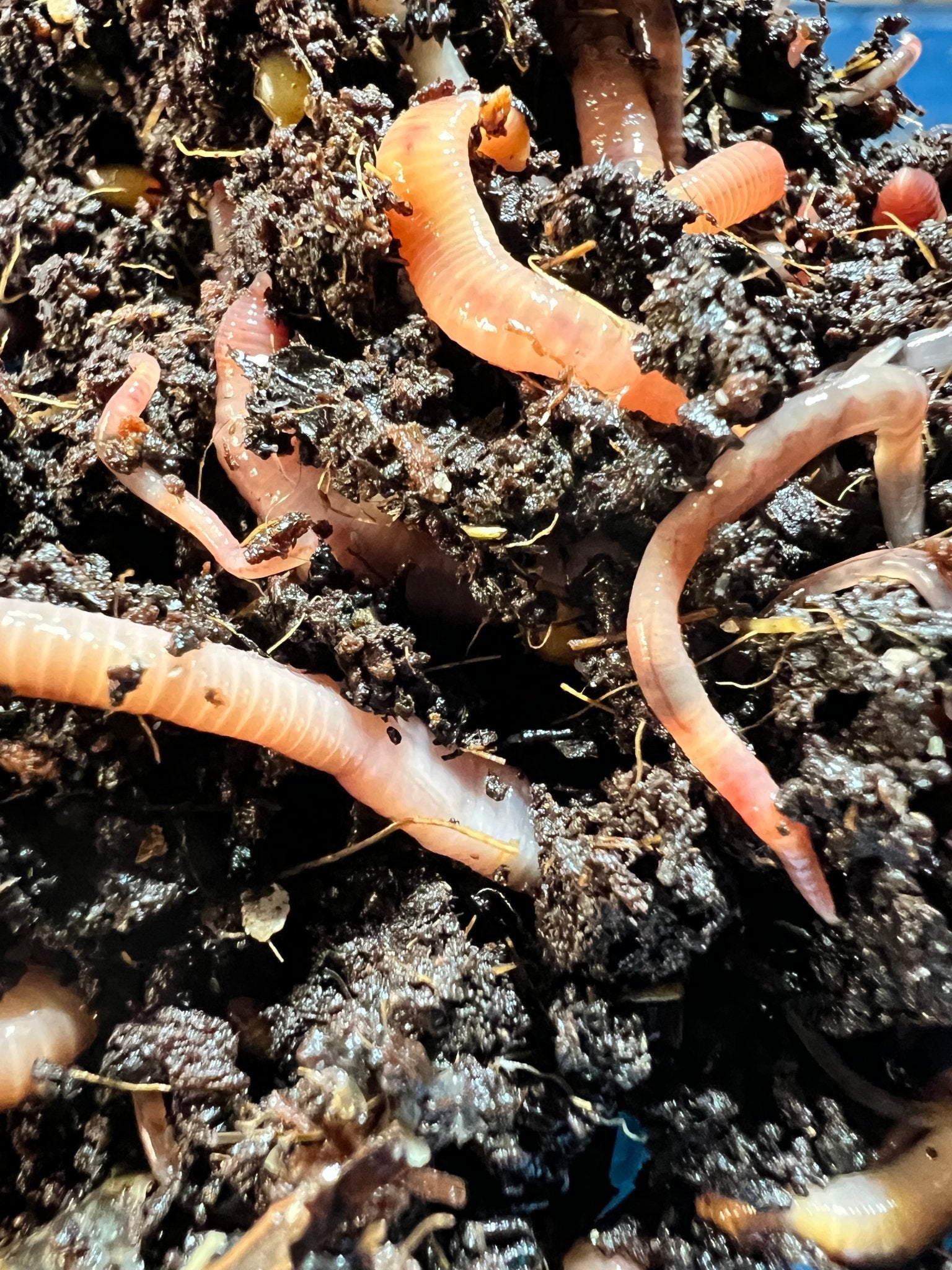The Incredible World of Red Wigglers: Boost Your Dirt Fertility Today
These small yet efficient microorganisms change natural waste right into valuable worm spreadings, considerably boosting dirt health and promoting sustainable practices. As we explore the benefits of vermicomposting and the practical steps to produce an effective worm bin, the prospective effect of these worms on your gardening success ends up being increasingly evident.
Recognizing Red Wigglers
Red wigglers, scientifically called Eisenia fetida, are a species of earthworm that play a critical function in boosting dirt fertility. These worms prosper in organic-rich settings, such as compost heap and decaying plant material, where they consume organic waste and eliminate nutrient-dense castings. Their special makeup, including a segmented body and a clitellum, allows them to reproduce swiftly and effectively process huge amounts of raw material.

The eco-friendly significance of red wigglers extends beyond simple waste processing; they contribute to the dirt food web, cultivating a diverse area of microbes that additionally enhance dirt health. Recognizing the biology and actions of red wigglers is essential for using their complete capacity in sustainable farming and horticulture methods.
Advantages of Vermicomposting
(Red Wiggler Express)Using the power of red wigglers via vermicomposting deals countless benefits that substantially improve dirt health and fertility. Among the main advantages is the production of nutrient-rich worm spreadings, which are an outstanding natural fertilizer. Red Wiggler Express. These spreadings have essential nutrients like nitrogen, phosphorus, and potassium, advertising durable plant growth and improving crop yields
In addition, vermicomposting boosts dirt framework and aeration. The presence of worm castings enhances dirt appearance, enabling for far better water retention and drainage. This well balanced moisture degree is essential for root development and the overall health of plants. Red wigglers assist damage down natural matter, increasing disintegration and reusing nutrients back right into the soil.
Vermicomposting likewise promotes microbial task, which is crucial for a healthy soil environment. Beneficial bacteria thrive in the existence of worm castings, aiding in the break down of organic materials and improving nutrition availability to plants.
Lastly, vermicomposting serves as a reliable waste monitoring remedy, reducing landfill waste by reusing cooking area scraps and other natural materials. This not only adds to environmental sustainability yet additionally promotes a round economic climate within horticulture and agriculture.
Exactly How to Establish a Worm Bin
Establishing a worm bin is an uncomplicated procedure that can dramatically enhance your composting efforts. Begin by picking a suitable container, which can range from a commercially available worm container to a straightforward plastic or wooden box (Red Wiggler Express). Ensure the container has ample ventilation; tiny holes in the lid and sides will help with air flow
Following, develop a bed linens layer to provide a comfortable environment for the red wigglers. This can be made from shredded newspaper, cardboard, or coconut coir, dampened to a wet, sponge-like uniformity. Fill up the container to around one-third full with this bed linens material.
As soon as the bed linen is prepared, it's time to introduce the worms. Red wigglers prosper in natural waste, so area them carefully onto the bedding. Cover the worms with a light layer of additional bedding to assist them accommodate.
Feeding Your Red Wigglers
Giving the appropriate food for your red wigglers is important for their wellness and the effectiveness of your composting system. Red wigglers prosper on a diverse diet plan, mainly containing organic products such as vegetables and fruit scraps, coffee grounds, and shredded paper. These materials not just give crucial nutrients but likewise add to the microbial task in the worm bin, which is essential for the worms' food digestion.
It is vital to stay clear of particular foods, such as milk products, oils, and meats, as these can bring in pests and produce unpleasant odors. Furthermore, citrus peels and excessively spicy foods should be restricted as a result of their potential to hurt the worms. A well balanced strategy to feeding includes checking the quantity of food introduced to the bin, making certain that it is taken in within a reasonable timespan to stop excess waste build-up.
To promote optimum digestion, it is useful to chop or shred bigger food products before including them to the bin. This method boosts the surface area for microbial action, helping with quicker decay and improving the overall effectiveness of your composting system. Consistently observing the worms' feeding habits will assist you readjust their diet plan as necessary.
Utilizing Worm Castings in Your Yard

(Red Wiggler Express)Including worm spreadings right into your garden can be achieved by mixing them into the soil or utilizing them as a leading clothing. The slow-release nature of these castings makes sure that nutrients are readily available to plants over a prolonged duration, minimizing the requirement for artificial fertilizers. Additionally, worm castings include beneficial bacteria that advertise healthy soil communities, boosting the general resilience of your yard.
To optimize the advantages, purpose to use approximately one part worm spreadings to 3 components dirt in your growing beds. Regular applications can bring about enhanced crop yields and healthier plants, making worm spreadings an invaluable resource for both novice and skilled garden enthusiasts alike. By using this natural amendment, you can cultivate a thriving yard Red Wiggler Express while adding to sustainable gardening methods.
Verdict
Finally, red wigglers exemplify the important role of vermicomposting in improving soil fertility. Their capacity to transform natural waste into nutrient-rich castings significantly enriches dirt structure and sustains microbial diversity. Developing a vermicomposting system not just promotes sustainable gardening methods but additionally adds to environmental wellness. By leveraging the advantages of these amazing organisms, garden enthusiasts can cultivate much more effective and resilient communities, eventually cultivating an extra sustainable technique to agriculture and gardening.